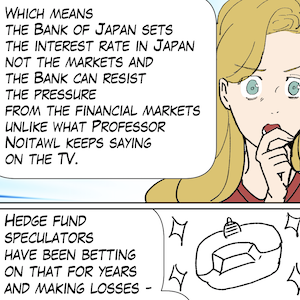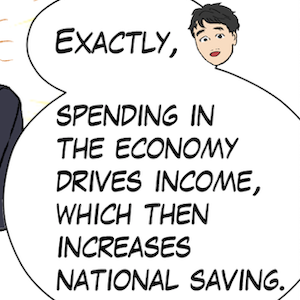When I was in London recently, I was repeatedly assailed with the idea that the Liz Truss debacle proves that the financial markets in Britain are more powerful than the government and can force the latter to comply with lower spending and lower taxes. It seems the progressives have a new historical marker which they can use to walk the plank into conservative, sound finance mediocrity. For decades it was the alleged ‘IMF bailout of the Callaghan government in 1976’ when Chancellor Dennis Healey lied to the British people about running out of money and needing IMF loans to stay afloat. They, of course, never needed any loans but Healey and Callaghan knew the people wouldn’t know that and they used the fiction as a vehicle to keep the trade unions in a subjugated position. That lie has resonated for years and has been a principle vehicle for those advocating smaller government, more privatisation, and more handouts to the top-end-of-town while at the same time cutting welfare payments to the poor, killing the national health system, degrading public utilities, transport and education and all the rest of it. Well now that gang, which now rules the Labour Party in Britain has a new fiction – the ‘Truss surrender to the markets’. And the logic is spreading elsewhere with lurid claims emerging that the so-called bond vigilantes are saddling up to force the US government broke.

